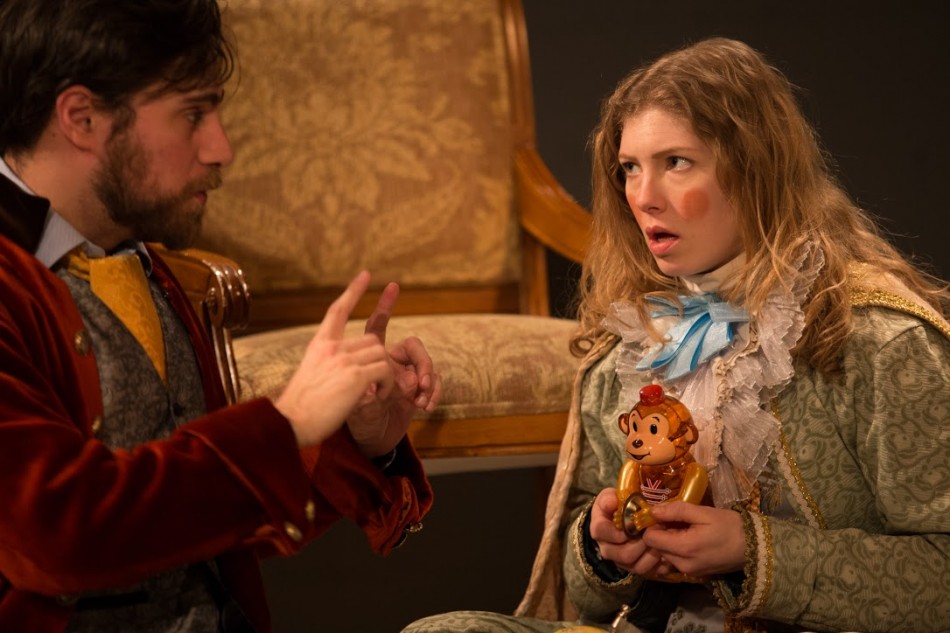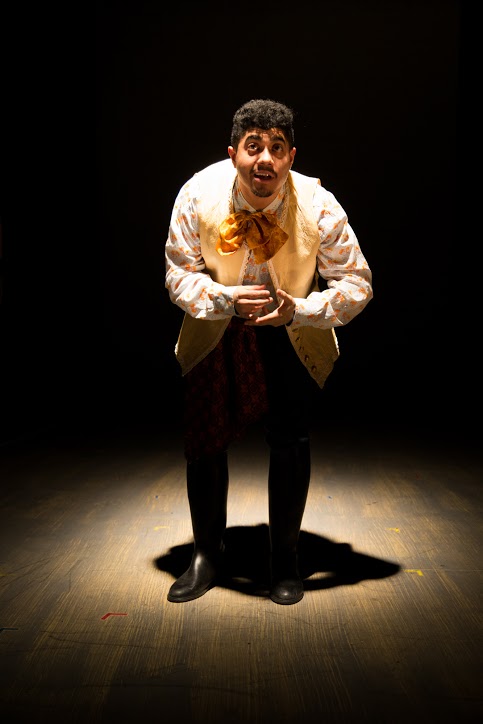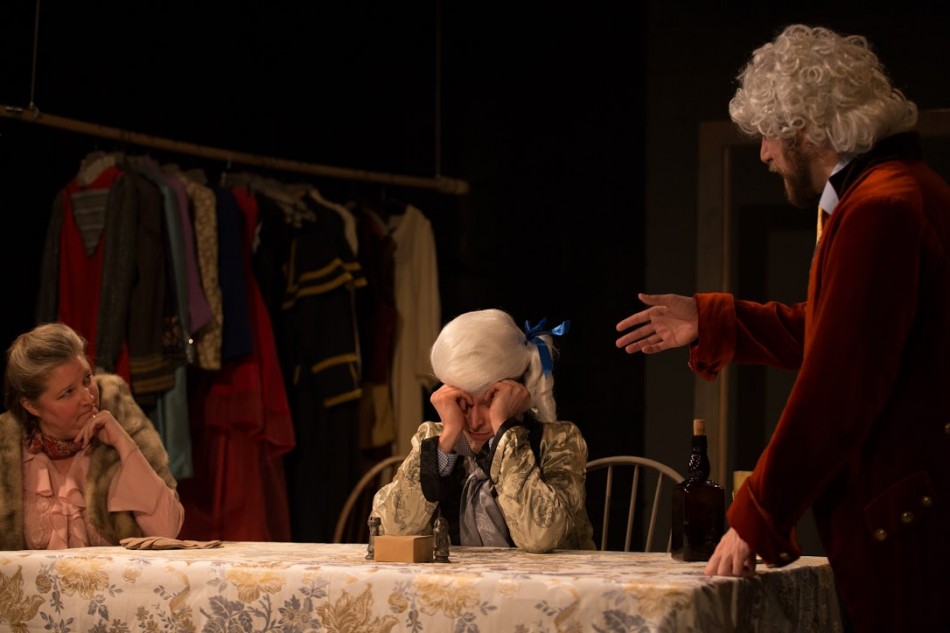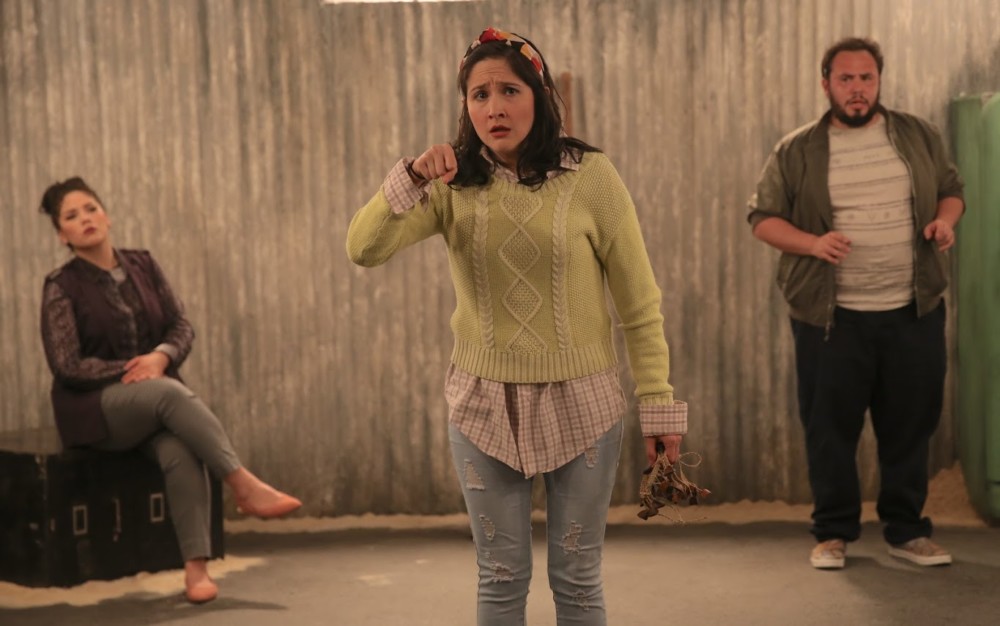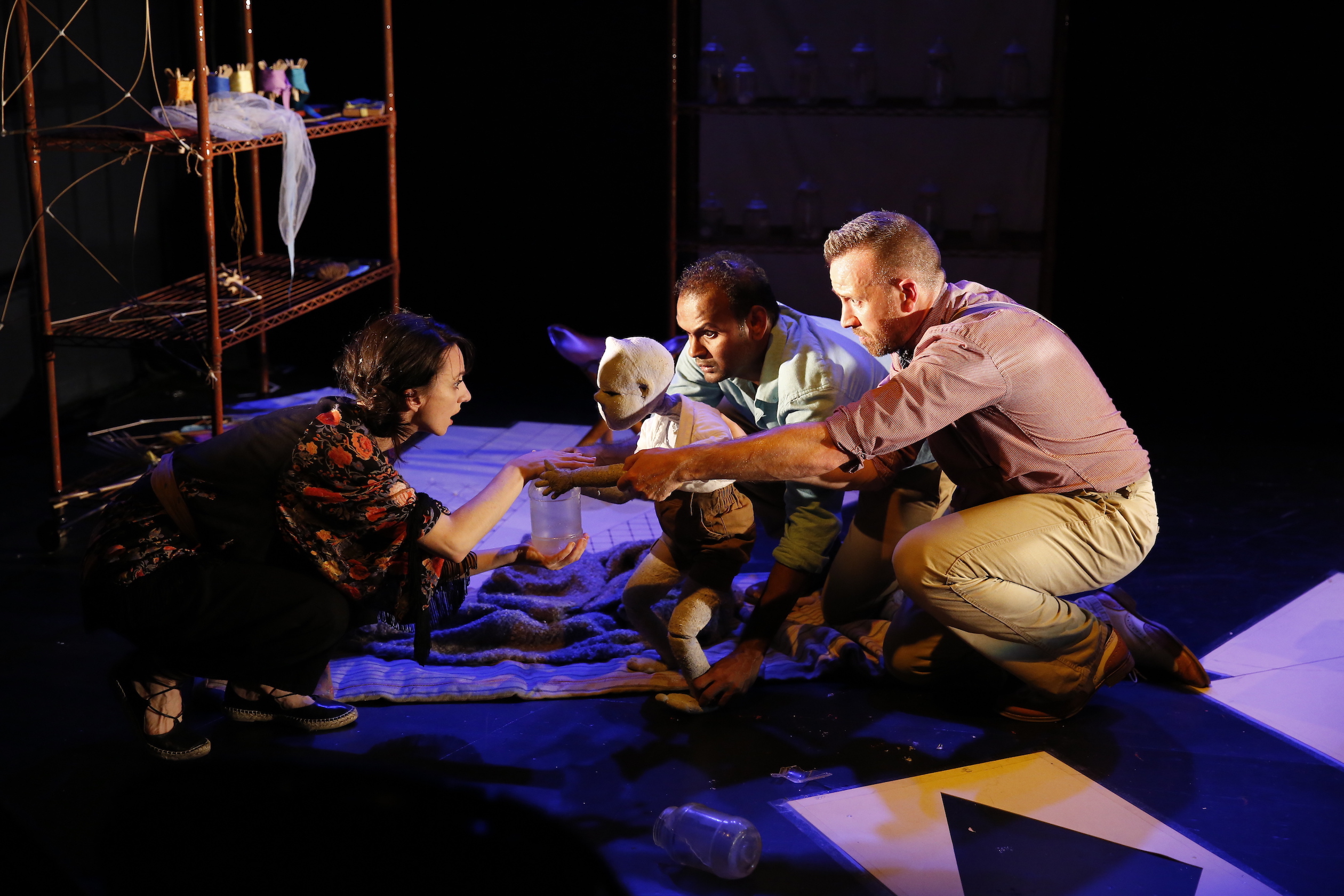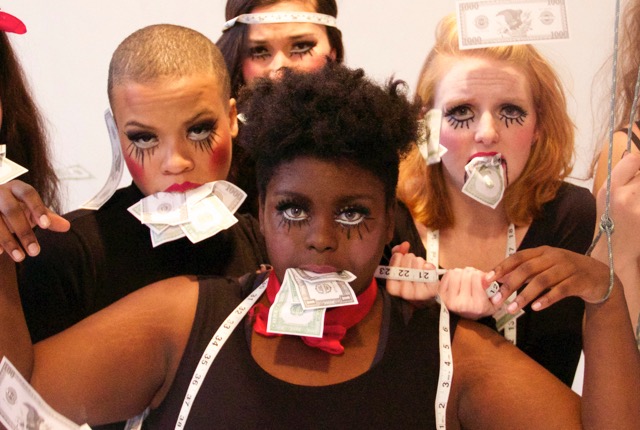by Monica Charline Brown
When you scratch your brain to determine some names associated with the founding of our global economy, you might guess Adam Smith, John Maynard Keynes, Milton Friedman, or even Karl Marx. But what if I told you John Law of Edinburgh made a huge impact on the way we produce and exchange currency? John Law…let me see…I don’t remember him in any history or government textbooks? With a script crafted by Matt Herzfeld and direction under Brad Raimondo’s swift hand, The Dreamscape Theatre’s production of The Improbable Fall, Rise & Fall of John Law strives to make the name one you will not soon forget.
First of all, John Law championed the idea that there is no intrinsic value in money. He suggested that money could merely be a physical token of wealth where, moreover, the overall capital of a nation was inherently based on trade. Instituting France’s first private bank, Law inaugurated a system where the production of paper money stimulated the economy while holding designated weight over metals. Bank shares were valuable as they were attached to dividends. However, do not think this man did not have a colorful past. Before fashioning France’s finances, he was a maven, gambling with cards, using his superior mind to analyze chance at a shockingly quick pace.
The play begins with a hunchback, disfigured man (Fernando Gonzalez) telling the lore of John Law as dually a fiscal mastermind and an untrustworthy con man. John Law (Greg Carere) and his mother (Sara Thigpen) are presented arguing over his gambling addiction and the future of the family fortune. Law visits a shabby tavern in London where he displays his expertise over all others in the room but likewise fails to measure up to the game of chance. His losses lead him to the doorstep of Miss Wilson (Rosie Sowa) and, in exchange for her fortune, he allows her to accompany him to a game. In a hilarity of pursuits, Edward Wilson (Mackenzie Knapp) arrives and challenges Law to a duel. Although Miss Wilson clearly had come on to Law, Edward, her brother, believes she has been taken advantage of by Law.
Law wins the duel, killing Edward in self-defense, which leads him to the dooming court of Judge Salathiel Lovell (Stephen James Anthony). The sentence is charged death by hanging, yet Law manages to escape confinement and flee to France. Seemingly a beggar by his rough appearance, he meets Katherine (Aurea Tomeski), the wife of a wealthy noble who immediately feels a connection with Law and leaves her old life behind. They voyage to Amsterdam where Law develops his theories of finance, but return home to Paris many years later. After not getting through to King Louis XV (Rosie Sowa), Law approaches The Duke of Orleans (Stephen James Anthony), who ultimately agrees to a centralized bank dealing in paper money. The printing press follows the orders and the play concludes with a shower of paper money upon Law’s head.
Greg Carere creates a brooding and sexy John Law that is also suave and debonair. Equally succeeding in the qualities of the visionary and the hard-headed, Carere’s leading man is organically multi-faceted. The remaining seven actors make up the entire ensemble of over forty characters to fill this thrillingly quirky world. The script called for comedic devices such as cursing and crude humor to keep the energy fresh, and the actors ran with it. The only components that seemed to take away from the overall commendable acting work were the inconsistency of the dialects throughout the countries from where the characters hailed (hard to justify a Southern dialect as a character choice in eighteenth century Europe) and the slow tempo of some of the stage combat sequences.
Projections of time-period appropriate sketches, paintings, and texts stylishly decorated the set during transitions, as well as the actors carrying them out. Joshua Rose, in his scenic and lighting design, generated a suitably rustic world with attention-grabbing floods of light in moments. The original compositions and sound design by Mark Van Hare were exceptionally compelling. Electronic dance modules filtered the traditional Baroque tunes as the plot thickened, musicalizing modernism as it penetrated the world of the play. Caitlin Cisek’s costumes played on the theme of contemporary versus classic, sneaking in denim and leggings to match the traditional costuming of the period.
For an inventive and bizarre evening of theatre that hauntingly resounds the massive political issues surrounding the economy in current day, check out The Dreamscape Theatre’s production of The Improbable Fall, Rise, & Fall of John Law.
IRT Theater – 154 Christopher St. NYC #3B (third floor). Running Mondays and Wednesdays at 7:30 pm, Thursdays – Saturdays at 8 pm, and Sundays at 5 pm through March 26. Visit: http://irttheater.org/current-season, or call Brown Paper Tickets at 1-800-838-3006. Runtime: 2 hours plus a 10-minute intermission.
Photos by Sergio Pasquariello


